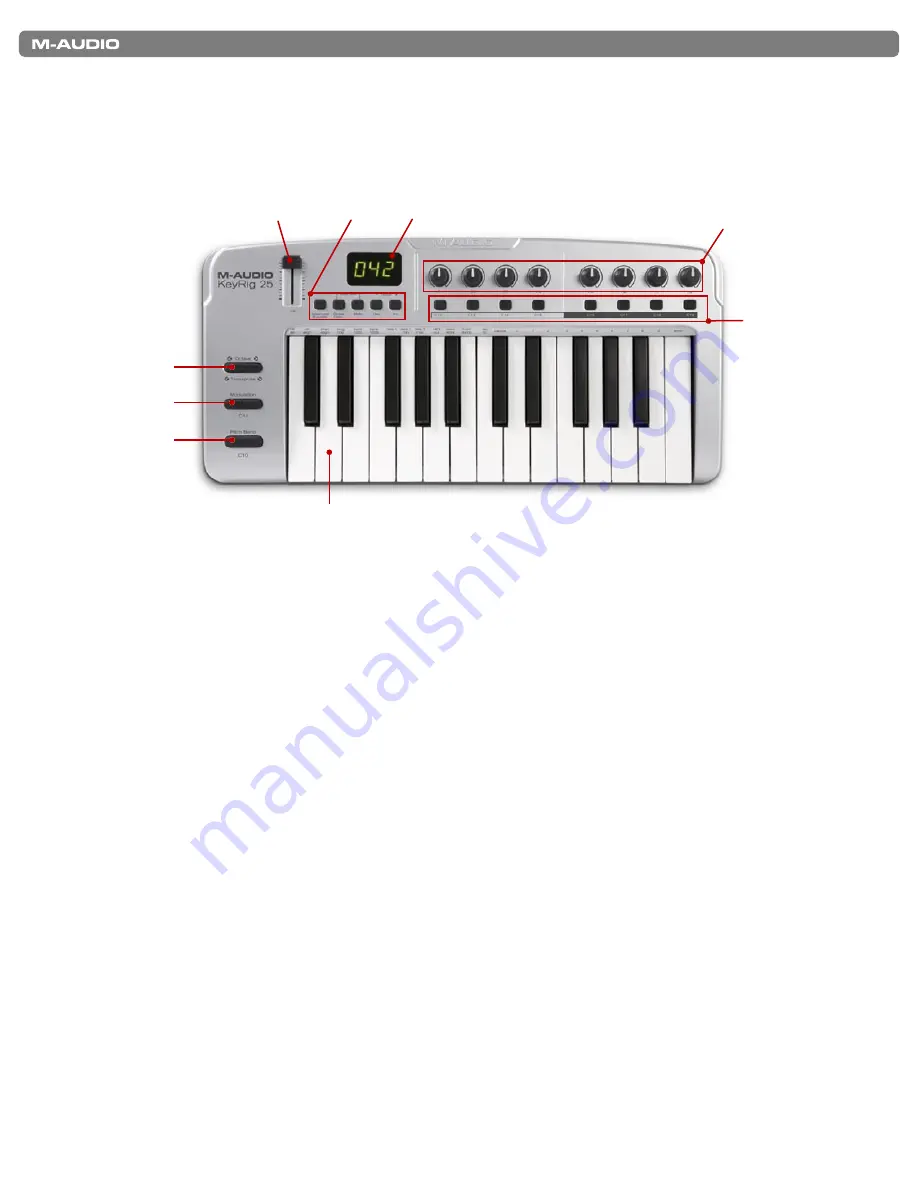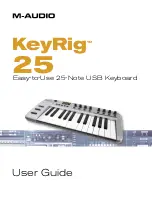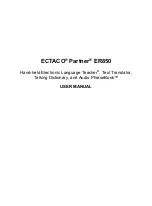
|
6
KeyRig 25 User Guide
Controls and Connectors
Top Panel
�
�
�
�
�
�
�
�
�
1.
Keyboard
– KeyRig 25 has a two-octave, velocity sensitive keyboard. This controller features special “half-action” keys which allow
KeyRig 25 to be thinner and more portable than traditional controller keyboards.
2.
Pitch Bend
– This control lets you create expressive changes in your performances by raising and lowering pitch. Pressing the
right side of the Pitch Bend control will raise an instrument’s pitch whereas pressing the left side will lower the pitch. Once the Pitch
Bend control is released, your instrument’s pitch will return to normal.
Note that the upper and lower pitch bend limit is determined by settings on your hardware or software synthesizer, not by the Pitch
Bend control on the KeyRig 25 keyboard. Typically, this can be either a half note or an octave up/down.
3.
Modulation
– This control is used to add expressivity to your performance by changing the intensity of certain effects. By default,
most synthesizers assign this control to manipulate vibrato (change in intonation) or tremolo (change in volume) although it is usually
possible to reassign the function of modulation through the instrument’s control panel.
The MIDI data range of the Modulation control is 0 to 127, with 0 being the note-unchanged position. Like the Pitch Bend wheel,
the amount of actual modulation that takes place depends on your instrument’s settings.
4.
Octave Up/Down
– The Octave Up/Down control “shifts” the keyboard’s octave range in order to let you play higher or lower
notes. Press the “” button to shift the keyboard up one octave; press the “Octave -” button to shift the keyboard down one
octave. Note that it is possible to shift several octaves in each direction by pressing the “” or “Octave -” buttons more than
once.
5.
Assignable Slider
– This slider sends out MIDI Continuous Controller (CC) data, giving you real-time control over your MIDI
hardware or software instruments.
6.
Function Buttons
– These buttons are used to access all of the various functions and features of the keyboard. They are
described in the “Using KeyRig 25” section of this guide
7.
LED Display
– The LED screen displays MIDI functions and data selections.
8.
MIDI Controller Knobs (C1 – C8)
– These eight MIDI Controller knobs give you real-time control over your MIDI hardware and
software through MIDI Continuous Controller (CC) messages.
9.
MIDI Controller Buttons (B1 – B8)
– Like the MIDI Controller knobs described above, these eight MIDI Controller buttons give
you real-time control over your MIDI hardware and software through MIDI Continuous Controller (CC) messages.
































![ADS AKX-FO(RS)-FO1A-[AKX-FO1]-EN Install Manual preview](http://thumbs.mh-extra.com/thumbs/ads/akx-fo-rs-fo1a-akx-fo1-en/akx-fo-rs-fo1a-akx-fo1-en_install-manual_2853544-01.webp)






